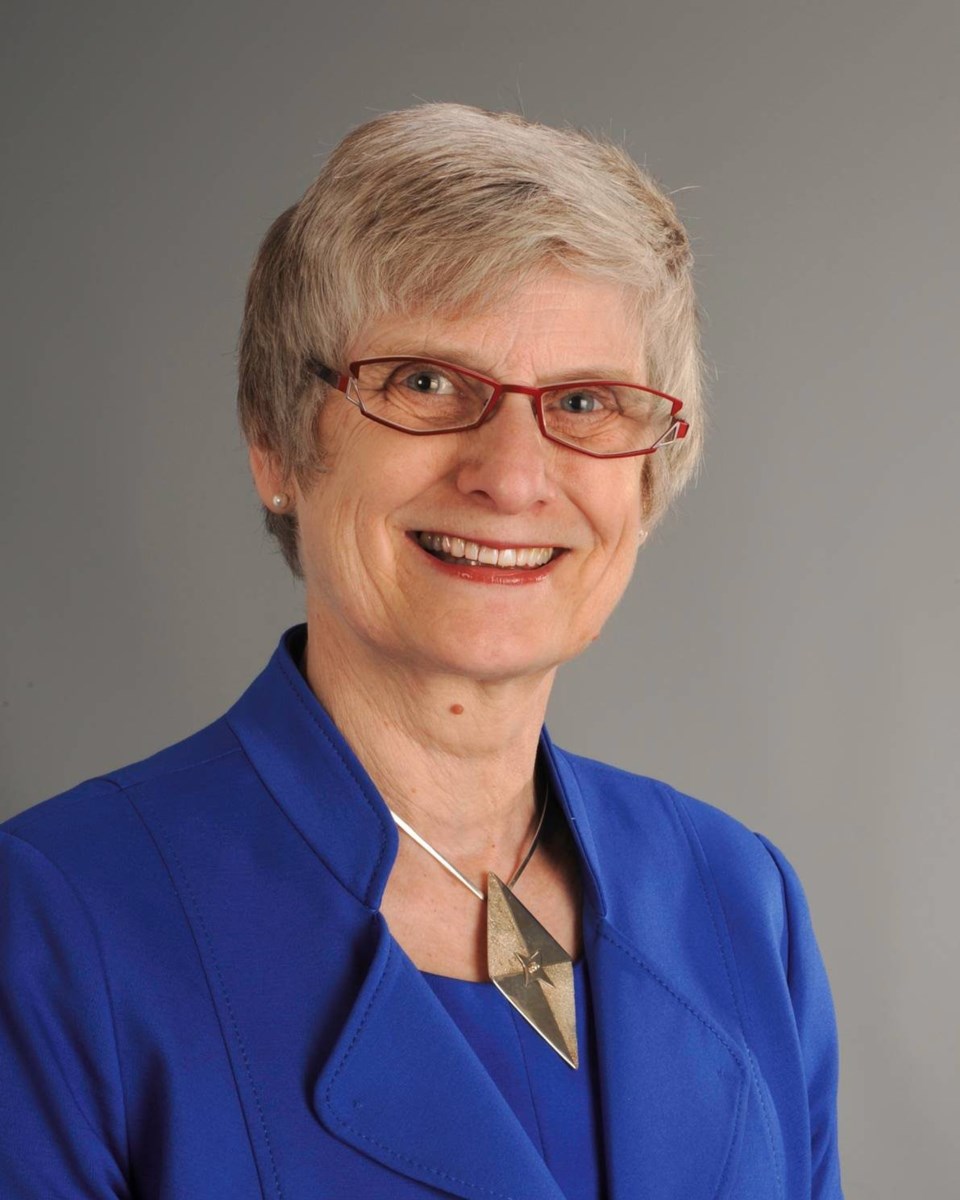Pat Bovey, former director of the Art Gallery of Greater Victoria, has been named one of nine new Canadian senators.
She said Prime Minister Justin Trudeau phoned her about the appointment late Wednesday.
“It’s exciting. And it’s humbling, it’s very humbling,” Bovey said Thursday from her Winnipeg home.
“I feel very honoured to be appointed in the first round.”
The 68-year-old art historian was the Victoria gallery’s director for 18 years. She left Victoria in 1999 to become director of the Winnipeg Art Gallery, where she served for nine years.
Bovey is the founder of the Buhler Gallery at Winnipeg’s St. Boniface Hospital, the first professional art gallery in a Canadian hospital.
She said part of her role as senator will be to advocate for the arts.
“It’s got to be really understood that arts and culture is critical to Canadian society as a whole,” she said.
“[In our phone conversation] the prime minister made it very clear we [senators] all work on all issues. But he also talked to me about the importance of arts and culture.”
Bovey is the widow of John Harvard, a former Liberal MP who served as Manitoba’s lieutenant-governor. However, she stressed: “I have no political affiliations — never have.”
She is one of nine non-partisan senators named by Trudeau, bringing him within reach of his goal to transform the discredited Senate into a more reputable, independent chamber of sober second thought.
The five women and four men hail from a variety of backgrounds. All will sit as independents in the Senate.
Trudeau is poised to announce two more batches of appointments within days, filling the remaining 12 empty seats — six from Quebec, six from Ontario — and, for the first time, putting senators with no partisan affiliation in the driver’s seat.
When he’s finished, independent senators will hold a plurality of 44 seats, outnumbering the Conservatives’ 40 and the independent Liberals’ 21.
They are the first senators to be chosen under an arm’s-length process that saw more than 2,700 people apply to fill the 21 vacancies in the 105-seat upper house.
Trudeau called the appointment process “merit based and open.”
Here are the other appointees:
• Lawyer and human rights activist Marilou McPhedran of Manitoba.
• Prince Edward Island conservationist Diane Griffin.
• Yuen Pau Woo, former president of the Asia Pacific Foundation of Canada and currently senior fellow in public policy at the Asian Institute of Research at the University of British Columbia.
• Winnipeg psychiatrist and palliative-care expert Harvey Chochinov.
•Rene Cormier from New Brunswick, president of the Société Nationale de l’Acadie, the lead organization for the international strategy for the promotion of Acadian artists.
• New Brunswick women’s issues expert Nancy Hartling.
• Nova Scotia social worker and educator Wanda Thomas Bernard, the first African-Canadian to be promoted to full professor at Dalhousie University.
• Daniel Christmas, senior adviser for the Mi’kmaw First Nation of Membertou, N.S.
Trudeau took the first step toward transforming the Senate in January 2014, when he kicked senators out of the Liberal caucus in a bid to diminish the partisanship he maintained had destroyed the Senate’s intended role as an independent chamber.
Shortly after taking power last fall, Trudeau created an arm’s-length advisory board to recommend nominees.
In the initial phase of its work, the board accepted nominations of potential senators from organizations across the country. It recommended 25 to Trudeau, from whom he named seven independent senators in March, including veteran bureaucrat Peter Harder to be the government’s representative.
Thursday’s nine are the first to be appointed under the second, permanent phase, under which individuals can apply directly to the board to become senators.
In addition to the independents, some senators have left the Conservative and Liberal Senate caucuses to join the ranks of non-aligned senators.
With their imminent plurality in the chamber, Harder said, the independents will be able to hasten the evolution of the upper house, whose operation has traditionally been geared to senators belonging to a governing party caucus and an opposition caucus.
He said the “highest priority” must now be given to changing Senate rules to recognize that “all senators are equal” and to give the non-aligned senators their fair share of budgets and membership on Senate committees.
He noted that the independents hold about 43 per cent of the seats in the Senate but only make up 17 per cent of the membership of committees, where the Conservatives continue to hold a majority.
“It’s a work in progress,” Harder said.
“You don’t with one flick of the switch change a culture or change a public perception.
“It’s for us to demonstrate that we can, in fact, be a chamber that is modern, that has changed, that earns and has earned public respect that this institution deserves and has not always enjoyed.”
- with files from Canadian Press



